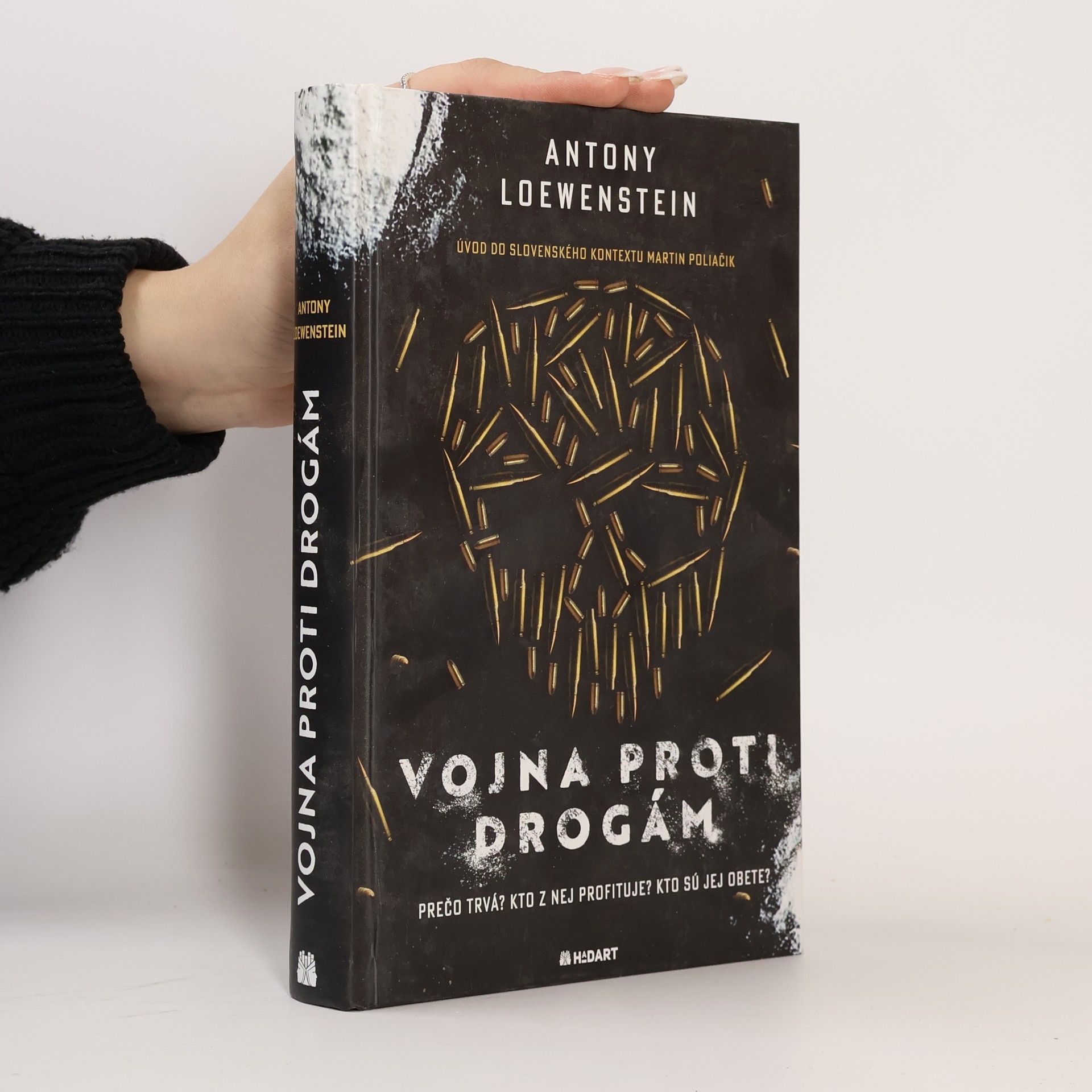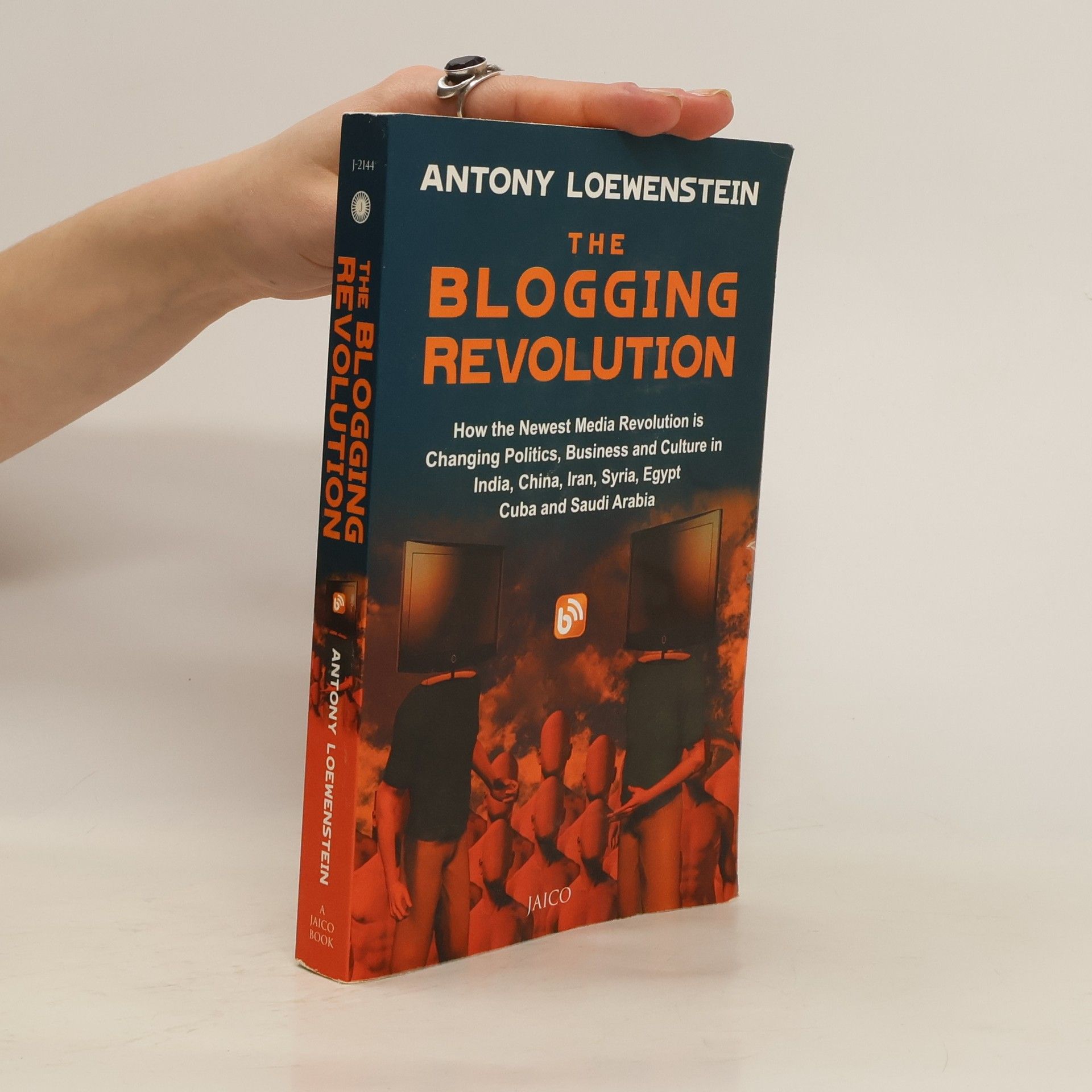How Israel makes a killing from the Occupation.
Antony Loewenstein Books





Disaster Capitalism
- 384 pages
- 14 hours of reading
A “keenly observed and timely investigation” of how capitalism makes a fortune from disaster, poverty and catastrophe—“a potent weapon for shock resistors around the world” (Naomi Klein, author of The Shock Doctrine) Disaster has become big business. Best-selling journalist Antony Loewenstein travels across Afghanistan, Pakistan, Haiti, Papua New Guinea, the United States, Britain, Greece, and Australia to witness the reality of disaster capitalism. He discovers how companies cash in on organized misery in a hidden world of privatized detention centers, militarized private security, aid profiteering, and destructive mining. What emerges through Loewenstein’s reporting is a dark history of multinational corporations that, with the aid of media and political elites, have grown more powerful than national governments. In the twenty-first century, the vulnerable have become the world’s most valuable commodity.
Pills, Powder, and Smoke
- 368 pages
- 13 hours of reading
Like the never-ending War on Terror, the drugs war is a multi-billion-dollar industry that won't go down without a fight. Pills, Powder, and Smokeexplains why. The War on Drugs has been official American policy since the 1970s, with the UK, Europe, and much of the world following suit. It is at best a failed policy, according to bestselling author Antony Loewenstein. Its direct results have included mass incarceration in the US, extreme violence in different parts of the world, the backing of dictatorships, and surging drug addiction globally. And now the Trump administration is unleashing diplomatic and military forces against any softening of the conflict. Pills, Powder, and Smokeinvestigates the individuals, officials, activists, victims, DEA agents, and traffickers caught up in this deadly war. Travelling through the UK, the US, Australia, Honduras, the Philippines, and Guinea-Bissau, Loewenstein uncovers the secrets of the drug war, why it's so hard to end, and who is really profiting from it. In reporting on the frontlines across the globe -- from the streets of London's King's Cross to the killing fields of Central America to major cocaine transit routes in West Africa -- Loewenstein reveals how the War on Drugs has become the most deadly war in modern times.
The Blogging Revolution is a colourful and revelatory account of bloggers around the globe who live and write under repressive regimes – many of them risking their lives in doing so. Antony Loewenstein’s travels take him to private parties in Iran and Egypt, internet cafes in Saudi Arabia and Damascus, to the homes of Cuban dissidents and into newspaper offices in Beijing, where he discovers the ways in which the internet is threatening the rule of governments. Through first-hand investigations, he reveals the complicity of Western multinationals in the restriction of information in these countries and how bloggers are leading the charge for change. The book also reveals some of the key players of the Arab Spring and how years of organising, web dissent and bravery led to momentous changes in US-backed dictatorships across the Middle East in 2010 and 2011. The Blogging Revolution is a superb examination of the nature of repression in the twenty-first century and the power of brave individuals to overcome it.
Vojna proti drogám
- 344 pages
- 13 hours of reading
Rovnako ako vo vojne s terorizmom sa aj vo vojne proti drogám točia miliardy dolárov a práve preto nie je ľahké ju vyhrať. Táto kniha vysvetľuje, prečo naďalej trvá, kto z nej profituje a kto sú jej obete. Vojna proti drogám ako politická stratégia existuje v Spojených štátoch od 70. rokov 20. storočia a ich vzor nasledovali aj európske štáty. Je to však prístup, ktorý zlyhal. Jeho výsledkom je obrovský nárast počtu ľudí vo väzení, násilie v rôznych častiach sveta, podpora diktátorských režimov a dramaticky rastúce počty závislých. Austrálsky novinár Antony Loewenstein precestoval Spojené štáty, Veľkú Britániu, Austráliu, Honduras a Filipíny, aby odhalil všetkých hráčov, ktorí sú do vojny proti drogám zapojení: úradníci, aktivisti, obete, agenti DEA, díleri aj užívatelia. Jeho reportáž z prvej línie odhaľuje, prečo je vojna proti drogám jedným z najtragickejších konfliktov našich čias.